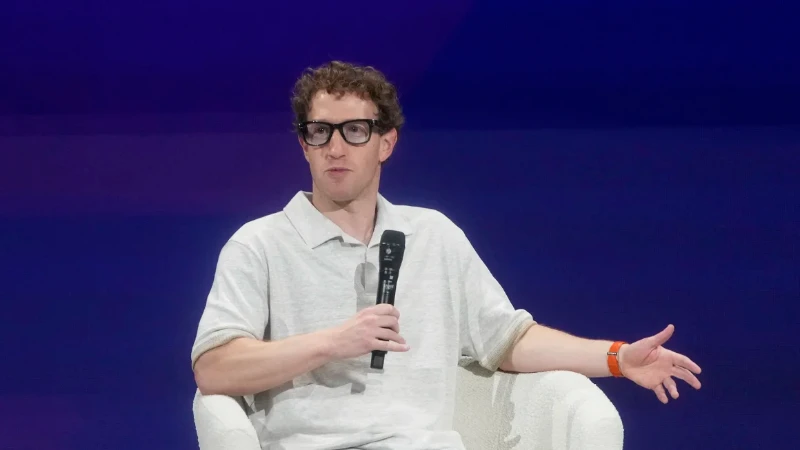Mark Zuckerberg Reportedly Assembling Team to Develop 'Superintelligence'

According to Bloomberg, Meta CEO Mark Zuckerberg is personally creating a team to achieve "superintelligence," or machines capable of outperforming humans.
Zuckerberg is apparently so dissatisfied with Meta's efforts in artificial intelligence that he has organized meetings with experts in the subject at his homes at Lake Tahoe and Palo Alto, California. Meta and Zuckerberg did not immediately respond to a request for comment.
Meta has developed AI technologies that are integrated into Facebook, WhatsApp, and other Meta-owned apps, as well as Ray-Ban eyewear and chatbots. However, OpenAI, the creator of ChatGPT, continues to lead the highly competitive AI landscape, and Meta's Llama AI model has recently suffered setbacks.
According to Bloomberg, Zuckerberg intends to hire approximately 50 people and has changed the structure of the company's Menlo Park headquarters to place the new AI team near his office, citing people who requested anonymity. According to Bloomberg, Zuckerberg has personally taken on this endeavour due to his dissatisfaction with the pace of Llama 4, Meta's most recent large language model.
The New York Times, which independently validated many specifics of the article, also stated that Alexandr Wang, the 28-year-old founder and CEO of startup Scale AI, is a part of the project, with Meta considering a billion-dollar investment in his company.
Zuckerberg has reportedly stated that Meta's large advertising business will sponsor the endeavour. According to Bloomberg, it is unclear how the new team will collaborate with Meta's current AI team.
Zuckerberg has worked hard in recent years to reinvent Meta as an AI powerhouse, with mixed results. His interest in the field has grown in response to OpenAI's advances, which have raised tens of billions of dollars in financing.
Zuckerberg's ambition of achieving superintelligence is incredibly ambitious. Before AI can acquire capabilities that outperform human brains, the technology must first have the ability to do anything a human can do, known as artificial general intelligence. AI experts disagree on how close we are to the AGI objective, with some claiming we are years away and others claiming we are nowhere near and have no road to reaching it.
Nonetheless, the AI race is as intense as any technological conflict in recent memory. Meta is competing with Microsoft-backed OpenAI and Alphabet, as well as a slew of other significant startups with substantial investment, like Elon Musk's xAI and Anthropic. Apple has had a delayed start, but it announced some of its own AI efforts this week.
Many tech CEOs, including Zuckerberg, feel AI poses an existential threat to their firms. Meta has attempted to distinguish itself from Llama by making it open source, a free AI model that aims to become the foundation for the bulk of the world's AI (imagine Android for artificial intelligence).
Google sees AI as a significant threat to its search business: if consumers can ask an AI model for the answer, why search for anything? Apple realizes that AI may eventually render apps obsolete, potentially jeopardizing its smartphone supremacy. OpenAI may have had a significant head start with ChatGPT, but competitors are swiftly coming up.